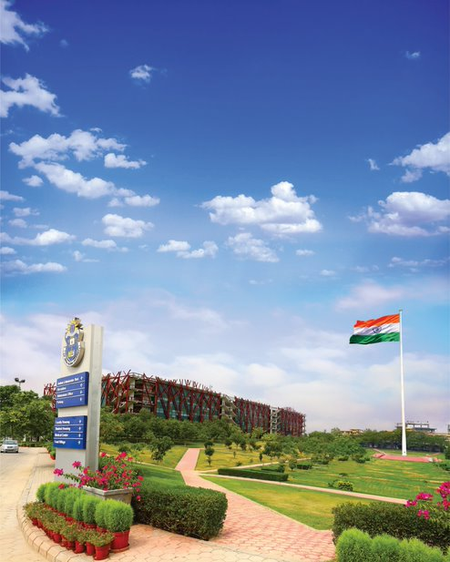
Sonipat, Nov 20 (IANS) Following a competitive bidding process, O.P. Jindal Global University (JGU) has been selected to host the 2026 STAR Scholars Network Global Conference from 10-14 December 2026. This was announced during the 2025 STAR Global Conference, hosted last month by Istanbul Aydin University in Turkiye.
O.P. Jindal Global University will convene the conference for the second time in India, where global scholars will gather to explore how humanity can thrive amid rapid advances in AI and the growing urgency of sustainability. The conference will be organised on the theme “Flourishing in the Age of AI and Sustainability.”
The upcoming 2026 conference is expected to draw leading academics, policymakers, researchers and practitioners from across continents, offering a crucial platform to explore how higher education can navigate and shape a world defined by accelerating technological change and urgent sustainability challenges.
With AI transforming labour, governance, culture and communication, and sustainability becoming a defining moral and developmental imperative, the conference aims to investigate what “human flourishing” looks like in a rapidly shifting global landscape.
Prof (Dr) C. Raj Kumar, the Founding Vice Chancellor of O.P. Jindal Global University, said, “The STAR Global Conference is hosted by a different country every year. The annual conference brings together scholars from around the world to foster cross-border collaborations for scholarly and cultural exchange. It is considered one of the most influential global forums on higher education, internationalisation and knowledge collaboration with over 20,000 plus members from 2353 colleges and universities across 115 countries around the world. Earlier, JGU hosted the 2021 STAR Global conference virtually from India because of the COVID-19 pandemic.”
The 2026 STAR Scholars Network Global Conference is expected to build on this momentum, providing a space for conversations that bridge technology, sustainability, ethics and humanity. Scholars are likely to discuss both the risks posed by artificial intelligence as well as the possibilities it offers for inclusion, creativity and global connectivity.
Similarly, sustainability will be examined not just through the lens of climate action, but also through questions of justice, equity and the human experience. While detailed programming will unfold in the months ahead, the choice of JGU as host of the Global Conference for the second time signals a growing recognition of India’s expanding role in global higher education and research cooperation.
It also marks an important moment for international academic networks seeking to understand how universities can lead in an age where the future of work, the planet and society itself is being rewritten. The decision to bring the conference to India again comes at a milestone moment for JGU.
Earlier this year, the university received the “2025 Global Education for Peace Award” from the STAR Scholars Network, a recognition conferred annually on the United Nations International Day of Peace. The award acknowledges institutions that demonstrate outstanding commitment to building cultures of peace through education by creating globally oriented curricula, inclusive teaching, international collaborations and community engagement.
JGU shared this year’s distinction with the American University in the Emirates (UAE); both institutions were recognised as exemplars of ethical leadership and global citizenship in higher education. The award highlighted JGU’s expansive network of more than 450 international partnerships, its emphasis on interdisciplinary and values-driven education and its sustained engagement with local communities through social responsibility initiatives.
It also recognised the university’s role in preparing students to be active, empathetic and globally minded citizens at a time when higher education is being called upon to address increasingly complex cross-border challenges.
–IANS
skp/
